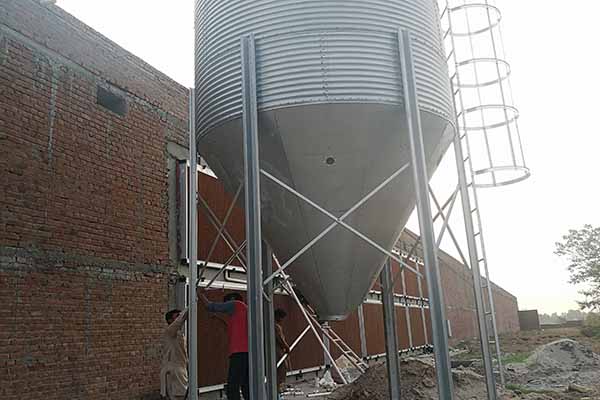Requirements for Environmental Protection Equipment in Tanzania Chicken Farms
Time : 2025-07-23
As a leading poultry equipment manufacturer from China, Livi Machinery understands the importance of environmental protection in chicken farms, especially in Tanzania where the agricultural sector is rapidly growing. Ensuring that chicken farms adhere to stringent environmental protection standards not only benefits the local ecosystem but also the health and productivity of the chickens. In this article, we will delve into the specific requirements for environmental protection equipment in Tanzania chicken farms and how Livi Machinery can provide the solutions you need.
Introduction to Environmental Protection in Chicken Farms
Environmental protection in chicken farms is crucial for several reasons. Firstly, it helps in reducing the spread of diseases that can affect both chickens and humans. Secondly, it ensures that the farm operates efficiently, leading to higher productivity. Lastly, it contributes to the overall sustainability of the agricultural sector.
Key Environmental Protection Equipment Requirements in Tanzania Chicken Farms
1. Ventilation Systems
Ventilation is critical in maintaining a healthy environment for chickens. In Tanzania, where temperatures can be quite high, a well-designed ventilation system is essential to regulate the temperature and humidity levels within the farm. The requirements for such systems include:
– Efficient Airflow: The system should be capable of providing sufficient airflow to ensure a comfortable environment for the chickens.
– Air Filters: To prevent the entry of dust, allergens, and disease-causing particles into the chicken house.
– Control Systems: Automated controls to adjust the airflow according to the weather conditions and the number of chickens.
2. Manure Management Systems
Manure is a significant concern in chicken farming due to its potential to contaminate water sources and release harmful gases. Effective manure management systems are, therefore, a must:
– Solid Manure Removal: Systems should be in place to remove solid manure from the chicken house regularly.
– Composting: Facilities for composting manure to reduce its environmental impact and produce organic fertilizer.
– Liquid Manure Storage: Secure and well-managed storage for liquid manure to prevent leakage and contamination.
3. Water Treatment Systems
Access to clean water is vital for the health of chickens and the overall operation of the farm. Water treatment systems should include:
– Purification: Mechanisms to purify water and remove impurities.
– Sanitation: Regular testing and treatment to ensure water quality.
– Recycling: Systems to recycle water for cleaning purposes within the farm.
4. Waste Management Systems
Proper waste management is essential to prevent environmental pollution. This includes:
– Biodegradable Waste: Facilities for composting or proper disposal of biodegradable waste.
– Non-Biodegradable Waste: Segregation and proper disposal of non-biodegradable waste.
– Hazardous Waste: Special handling and disposal of hazardous waste generated from the farm operations.
5. Energy Efficiency Equipment
Reducing energy consumption is not only cost-effective but also environmentally friendly. Chicken farms can benefit from:
– LED Lighting: Energy-efficient lighting solutions to reduce electricity consumption.
– Solar Power: Utilization of solar energy for heating and cooling systems.
– Automated Control Systems: To optimize energy use by adjusting equipment operation based on the farm’s needs.
How Livi Machinery Can Help
At Livi Machinery, we specialize in providing high-quality poultry equipment that meets the specific requirements of environmental protection in chicken farms. Our range of products includes:
– Ventilation Systems: Custom-designed ventilation systems that ensure optimal airflow and temperature control.
– Manure Management Solutions: Efficient solid and liquid manure management systems that reduce environmental impact.
– Water Treatment Technologies: Advanced water purification and recycling systems to maintain water quality.
– Waste Management Equipment: State-of-the-art waste management solutions for effective and eco-friendly disposal.
– Energy-Efficient Solutions: Energy-saving equipment that helps lower operational costs and reduce the carbon footprint.
Conclusion
Meeting the environmental protection requirements in Tanzania chicken farms is not only a legal obligation but also a responsible approach to farming. By investing in the right equipment, such as those provided by Livi Machinery, chicken farmers can create a sustainable and productive environment for their birds while protecting the local ecosystem.
For more information on our range of environmental protection equipment for chicken farms in Tanzania, please contact our team today. We are committed to helping you achieve a greener and more efficient farm operation.
Tags












